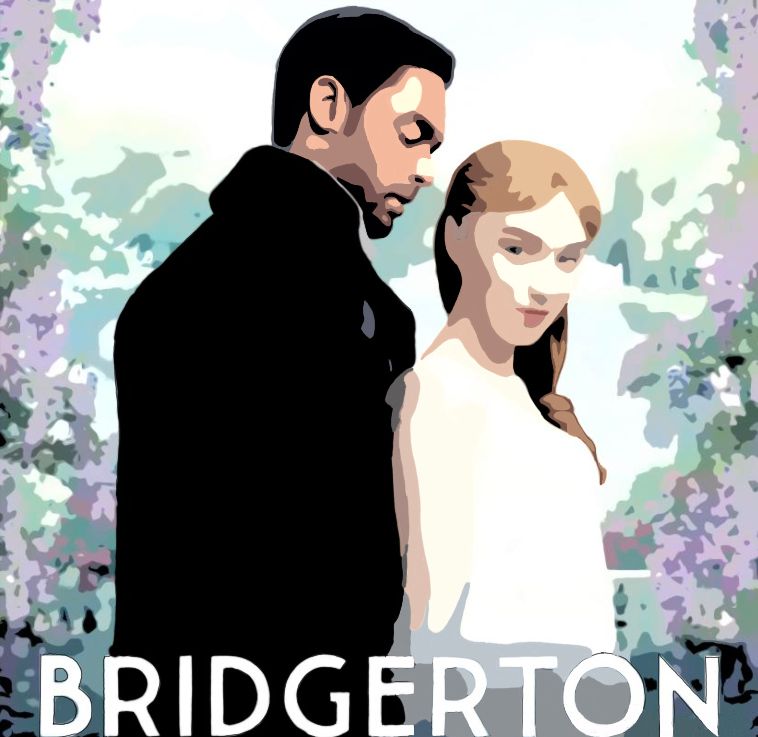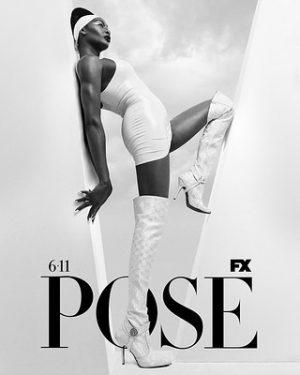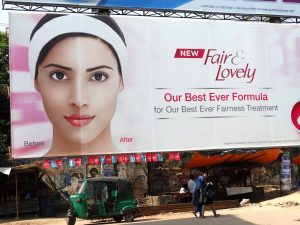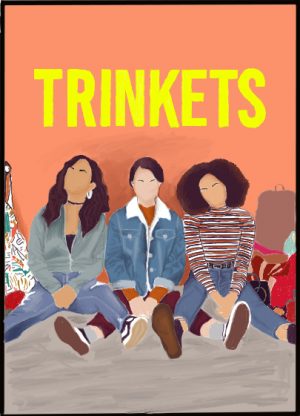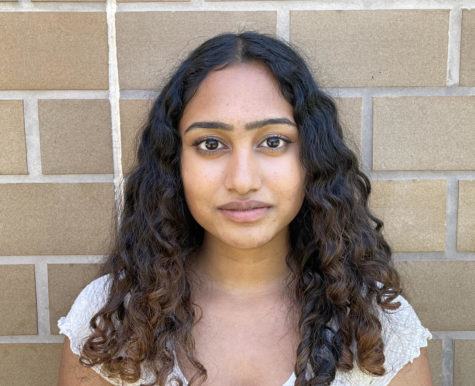Bridgerton fails to live up to its title of being a truly inclusive romantic historical fiction
The story surrounds the Bridgerton family, and specifically Daphne, who is looking to get married in her first wedding season.
February 24, 2021
Content Warning: Sex and sexual themes. The show “Bridgerton” on Netflix contains many sex scenes and this review will briefly touch on that.
The series “Bridgerton,” on Netflix, struggles to live up to its name. Despite the more diverse cast, colorful imagery and clothing, and a handful of likeable characters, “Bridgerton” lacks in true color-blind casting and healthy relationships.
The series premiered on Dec. 25, 2020. It was marketed as an inclusive, romantic period drama that mixed Gossip Girl with Pride and Prejudice. It was adapted from a book series of the same name. The story surrounds the Bridgerton family, and specifically Daphne, who is looking to get married in her first wedding season. It also surrounds the Featherington family, who have to take in Marina Thompson because of a deal Lord Featherington made. Lady Whistledown, a gossip columnist reports on the most wealthy families in London, and their scandals. The main storyline follows the relationship of Daphne Bridgerton (Phoebe Dynevor) and Simon, the Duke of Hastings (Regé-Jean Page).
Colorism and casting: It’s just okay
Despite being marketed as inclusive, the show’s inclusivity levels were pretty low. On a scale of 10, I’d say a 4/10. It is true, it was nice watching a historical fiction show whose cast wasn’t only white people, and I liked the inclusion of people of color. But, I think this still fell flat in numerous ways. First of all, the only characters of color that had major roles had lighter skin. The discussion of skin color is relevant here because it deals with Hollywood’s “acceptable” version of a person of color, which includes someone with lighter skin, and more eurocentric features. There were also no other races of people of color seen with major roles in the show, besides in the background if you looked hard enough; true inclusion and representation is not a cast full of white people with a couple of Black people included. This makes them seem as if they were added in as token characters.
People with darker skin were cast as characters as well, but they were either secondary characters, or were evil characters. For example, Lady Danbury (Adjoa Andoh), and Will (Martins Imhangbe) — Simon’s boxer friend —have darker skin, but they didn’t have their own storylines, and we learned little about them. The late Duke of Hardings (Richard Pepple) is another character with dark skin, who was arguably one of the worst characters in the series, because of the way he treated Simon and was the catalyst of one of the major conflicts of the series: Simon’s desire to never have children. Marina Thompson (Ruby Barker), one of the characters of color with more screen time, also got the saddest storyline so far out of everyone else.
In addition to the colorism, the way societal integration was explained was awkward and unnecessary. As the show opens up, it is shown that the world of “Bridgerton” is a completely integrated society. People of color are Lords, Ladys, Dukes, Duchesses and Queens, and there is no sign of racial discrimination (except for when the late Duke of Hastings told a young Simon that he has to work twice as hard to get what the other people have — this was most likely an attempt to highlight racial injustices, but the idea was never fleshed out). The show tries to explain racial integration, rather poorly, in a conversation Lady Danbury has with Simon. She explains that the reason that their society is integrated is because the white king fell in love with a Black woman and made her his Queen. This pushes the idea that interracial relationships solve all racial probelms and that they are the answer. Real life has proven this to not be the case (Prince Harry and Meghan Markle’s relationship definitely did not solve any racial issues, but rather highlighted the racism in the UK). I also just think this was poor worldbuilding, and completely took me out of the story. In the early 1800s, when Bridgerton takes place, slavery was still legal, and the British Empire was colonizing the world. How would racial integration and equality have even been achieved in a society like this?
Historical Fiction: Where to stop with accuracy?
“Bridgerton” is historically inaccurate, but this isn’t a bad thing. As a work of historical fiction, it’s completely fine to change aspects of history to fit the story they want to tell. The series made it clear that it wasn’t trying to be accurate. It had classical covers of contemporary pop songs during many of its scenes. The fashion tried to be accurate, partially, in its shape, but used modern, brightly colored fabrics to contrast that. My question is, why did women still have to be oppressed? I know it’s based on a book series, but they already took so many creative liberties (Viscountess Bridgerton was much more likeable in the series, for example) so why did they have to keep women oppressed to the level that they realistically were? Did it really further the storyline that much?
Daphne and Simon’s relationship: Were we supposed to be jealous? Because I’m not
Content Warning: sex and sexual assault in this section
Daphne and Simon’s relationship is the main storyline advertised in the series, yet whenever they came on screen I wanted to skip the scene. The start of their relationship was cute, they became friends, and genuinely seemed to enjoy each other’s presence. The scene that I think turned their storyline for the worst? The garden scene. Simon was willing to dishonor Daphne before he was willing to marry her, but, because of this, they entered into a marriage that seemed like neither of them wanted. There were scenes of the both of them with looks on their faces like they were regretting their decisions, but then Daphne moved in with Simon, and their relationship is no longer cute. Every single scene they were in together had a sex scene in it, which I still think is a little excessive, seeing that their relationship was extremely rocky for most of the series. I think this plays into how toxic their relationship was, yet was still presented as a passionate, romantic relationship.
On top of being generally toxic, their relationship is not something to be romanticized at all. Building off on the portrayal of women’s oppression in the show, Daphne is never explicitly told how babies are made and never expresses to her husband that she doesn’t know. This leads to an unsettling relationship dynamic, when in this situation, Daphne is way more childlike in this category, compared to Simon, who is shown to have way more experience. Simon’s miscommunication combined with Daphne’s miscommunication, leads to a scene where Daphne r***s Simon, and this is brushed off, and Daphne was portrayed as the victim. I don’t care if that wouldn’t have been seen as valid r*** at that time, this is historical fiction, and that still doesn’t make it any less worse.
I think another problem with this was that they tried to combine too many tropes (enemies to lovers, friends to lovers, indifferent to in love) within the same relationship. The bigger problem though, I think was their lack of communication. They refused to just talk to each other, and instead kept secrets from one another or refused to explain, which frustrated me so much. They assumed the other person knew exactly what they were saying, while using vague language. Maybe it’s just me, but I think their relationship would have been better if they had just, you know, talked to each other like normal people in relationships do. If this is supposed to be some sort of “they went through so much together but in the end they still love each other” kind of story, that doesn’t even work, because half of the problems that surrounded their relationship were created by them.
Overall: Worth it?
There were likeable characters in the show. The rest of the Bridgerton siblings, besides Anthony and Phoebe Featherington, Lady Danbury, Lady Whistledown, Marina Thompson, were all likeable characters, and I enjoyed seeing their individual storylines in the series, even though most of them were brief.
I don’t really like this show. I think it made some steps in the right direction in terms of inclusivity, and it had its fair share of likable characters. That being said, I think it’s worth the watch for those other characters, and if you’re ok with (or ok with skipping over) the copious amounts of sex scenes in the show. Or, you could watch it for the fashion, since every single character had elaborate costumes, but these issues I mentioned were too large to ignore.

